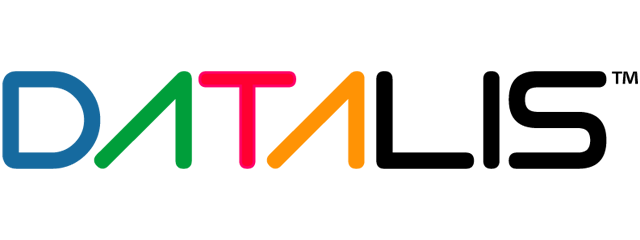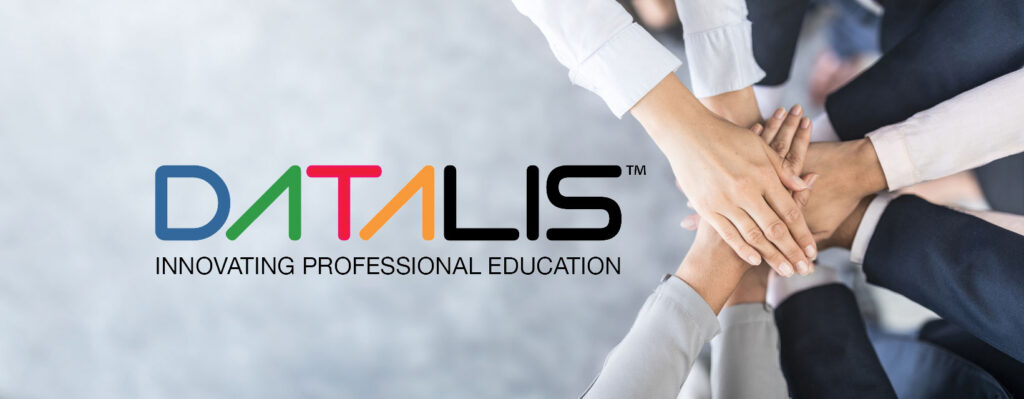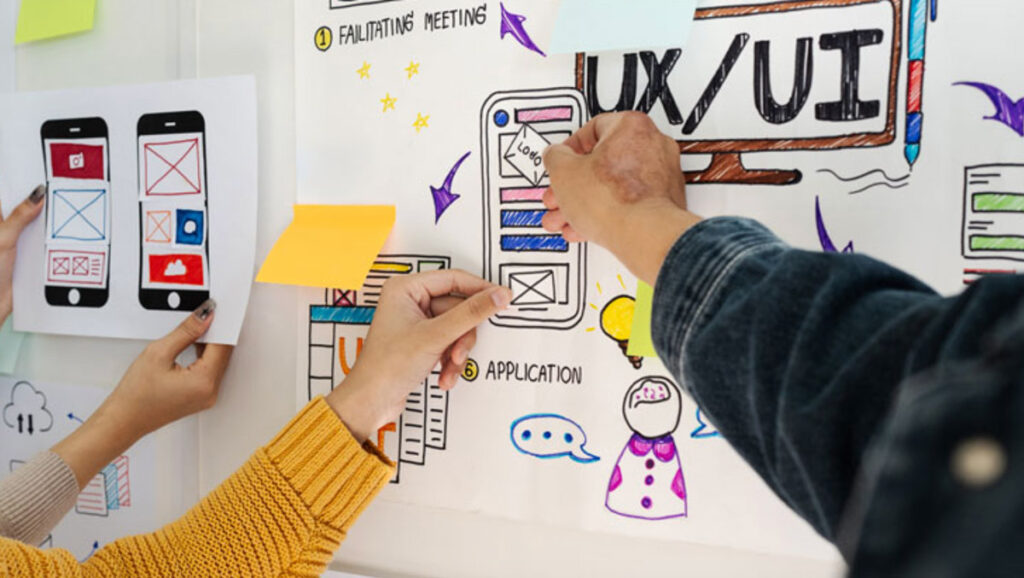In February 2024, the DATALIS team held three WORK workshops which explored problems and potential solutions in professional education.
During the workshop, we explored areas for the greatest potential impact by reviewing some of the major themes that emerged in our “Rose, Thorn, Bud” activity during the LEARN event. As you can see in Figure 1, when asked to vote, participants indicated that the four highest areas of impact (i.e., thorns) were addressing general challenges in professional development, focusing on technology and skill gaps, aligning professional education with institutional and organizational change, and aligning workplace culture and environment with professional education.

A fuller description of these four themes, which helped with the voting process:
- Challenges in Professional Development
- Mismatch between training and job requirements, cost, time
- Technology and Skill Gaps
- Practical needs in the field as compared to LIS curricula
- Institutional and Organizational Challenges
- Change fatigue, bureaucracy, lack of equitable support for all employees
- Workplace Culture and Environment
- Burnout, lack of capacity, work-life balance
Participants were then provided with an explanation of the design thinking process and a model of how it might be applied to the concept LIS professional education.
Design Thinking is the planning, thinking and creative activities
Kevin Popovic, aka The Idea Guy®, 2024
related to defining and solving a problem.
Using this as a jumping off point, participants in each workshop were divided into 2-3 person teams to create and refine problem statements and propose potential solutions. Participants were asked to describe these solutions in words and also in images, and the teams got creative in their visual representations. In “sketch divergent,” they were asked to include as many visuals as possible to represent their solution, while in “sketch convergent,” they were asked to consolidate those ideas into a single visual (note: the Feb 8 workshop only included “sketch convergent”).
Figure 2 shows a selection of examples from the workshops, including their problem statements, potential solutions, and visual representations.
| Problem and Solutions |
| Problem: How might we help library and information professionals create spaces that make learning, sharing, and innovation possible to achieve individual and organizational goals. Potential solution: We need space to innovate with each other; need space in time; so we propose that we have a dedicated quick coffee break time that is dedicated to socialization, learning about each other, having a chance to play and try things. 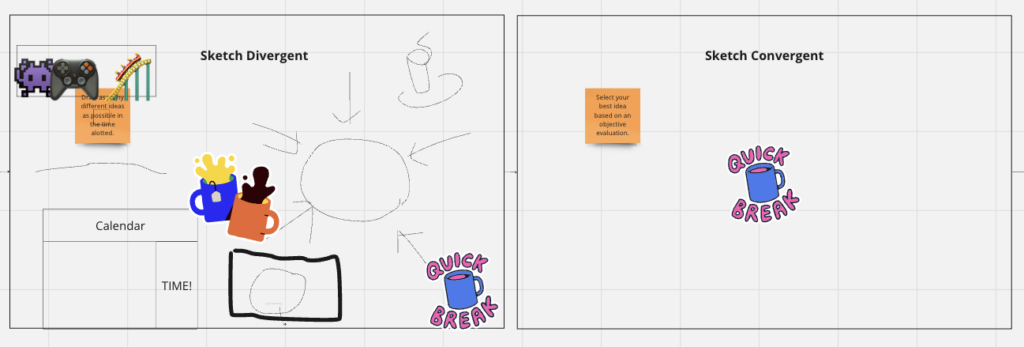 |
| Problem: How might we help LIS organizations better support mentorship focused on outcomes and current needs to help library professionals meet the constantly changing needs of users. Potential Solution: Mentorship and career development benefits the user; involves financial support but broader notion of value – how do we value the broad range of skills in the library and how do we invest in mentorship. 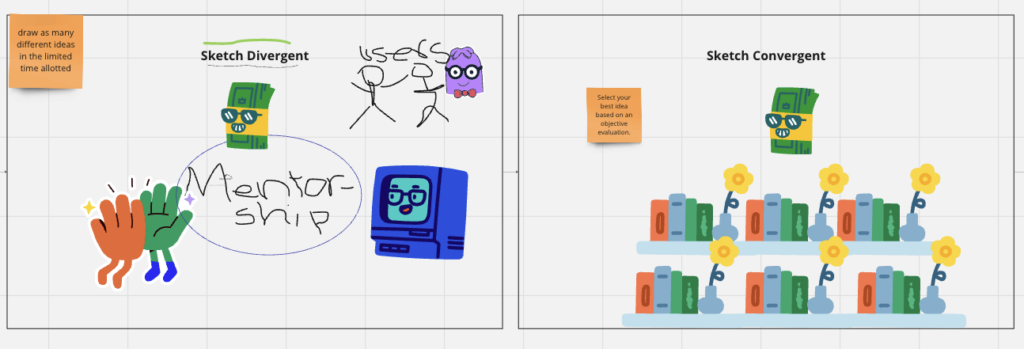 |
| Problem: How might we help library leadership to open space for play and skill development as part of work to enable future project successes, increase job satisfaction, and improve workplace culture. Potential Solution: Rethink how we do learning, take a wider lens to maximize what we learn – let more creative learning happen to get a greater throughput of learning and generate new ideas. 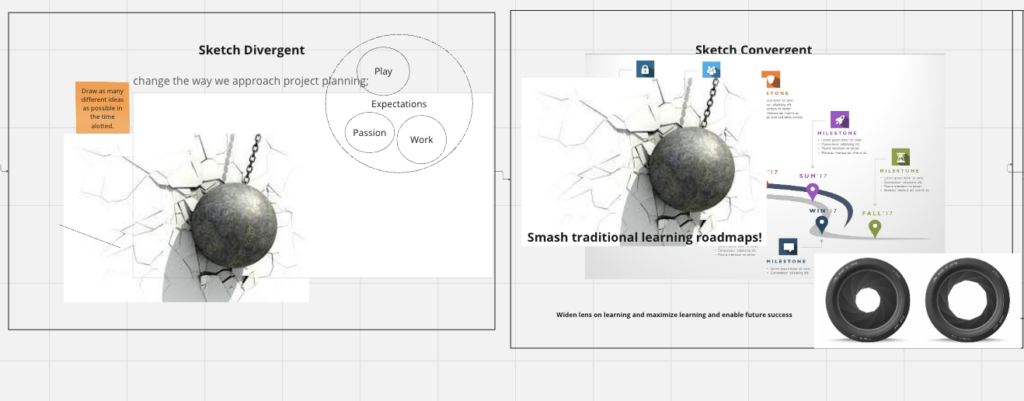 |
| Problem: How do we help LIS professionals including students advocate for the field and their own skills to emphasize the importance of information science in the broader world (measures – tool use/development, assess where LIS professionals are in positions of power to make change, mentor up/out of libraries to they can make change). Potential solution: Leading with equity minded lenses to change the world.  |
| Problem: How can we help librarians and library workers successfully complete the institute to experience and create a more inclusive and supportive work environment for BIPOC. Potential solution: Helping librarians and workers create a more inclusive work environment. 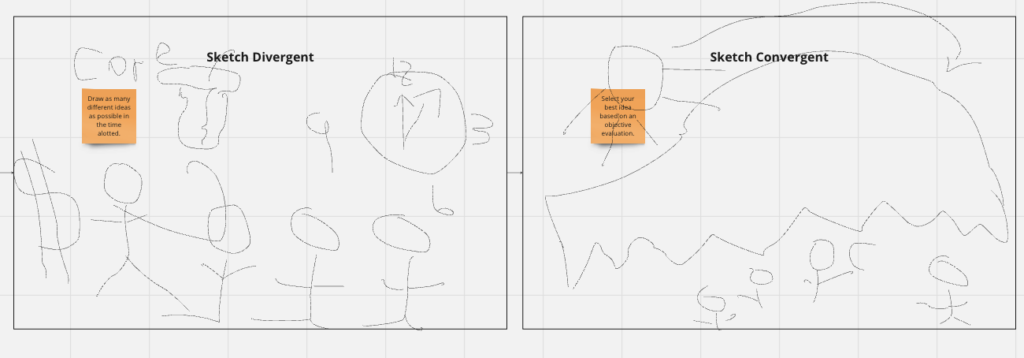 |
| Problem: How might we help students have confidence with technology? Potential solution: basic classes in technology, not a separate curriculum (integrated classes), faculty interested in communicating the value of tech in library spaces. |
| Problem: How might we help library workers in under-resourced communities with overriding pressures to access context appropriate learning and experiences to improve job satisfaction. Potential solution: Create a network of experts who can share good ideas and motivation with each other. 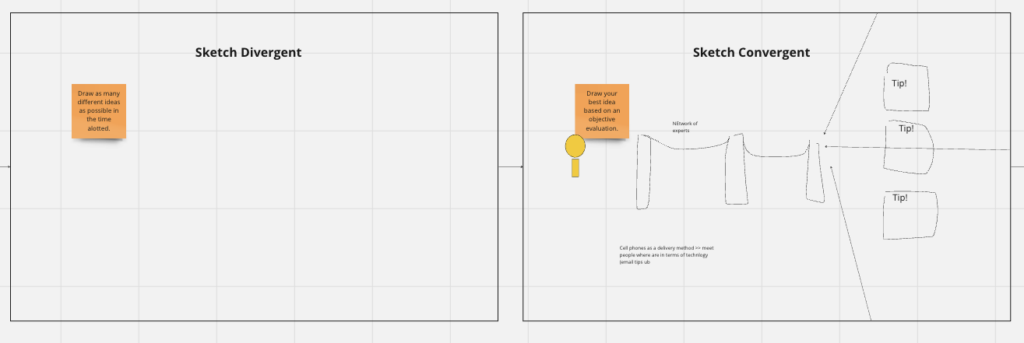 |
| Problem: How might we mentor late-career librarians to plan for the end of their careers to build their legacies, in a way that increases job satisfaction, reduces negative consequences (i.e., around discussing leaving an organization) and decreases ageist rhetoric? Potential solution: Bring together people in community to talk about career progression and late career planning. 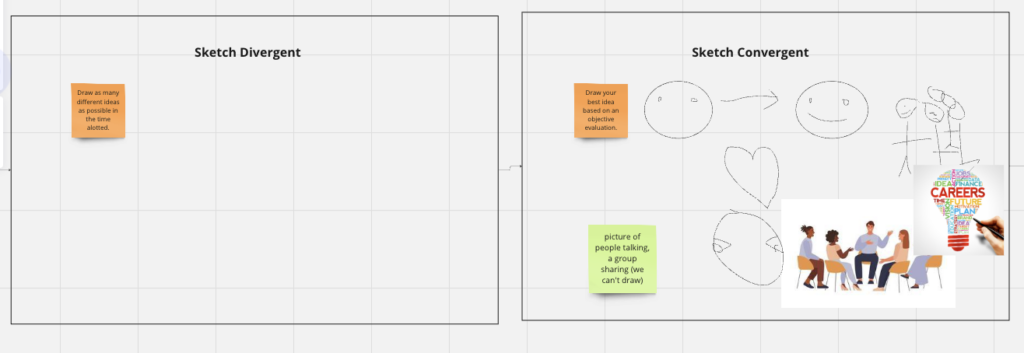 |
| Problem: How might we help LIS students equip them to pursue more opportunities in their early careers in order to build their self-confidence, increase empowerment increase exposed to a wider variety of LIS careers begin building professional networks. Potential solution: Create a “speed dating with professionals” program to help early career folks create more connections.  |
| Problem: How might we help liaison librarians, by disciplines, to respond to users’ rapidly changing expectations through strategic planning about service roles, advocacy, partnerships, and collaboration with peer disciplinary librarians? Potential solution: Build a network of experts for co-support.  |
| Problem: How might we help LIS students get library experience in order to bridge the gap between theory and practice. Potential solution: Explore the practicum and mentorship experience, and tune to meet today’s student needs. 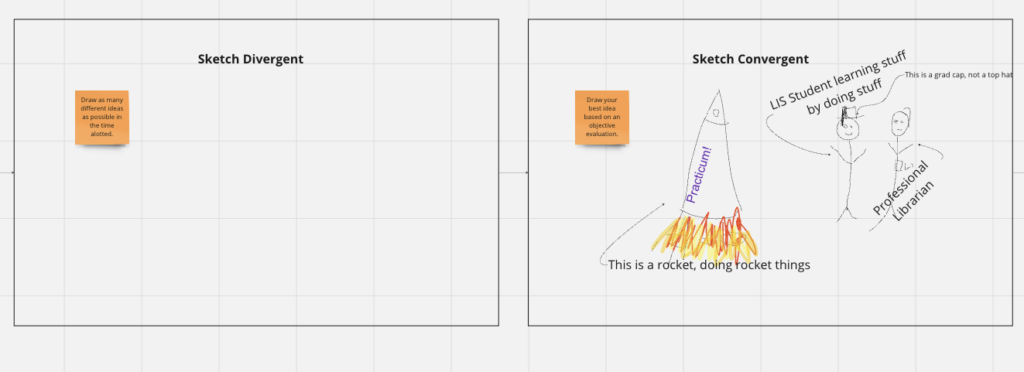 |
| Problem: How can we create events and build policies that will serve to motivate our community and improve learning experience for students? Potential solution: Create career fairs with alums, faculty and others and incentivize student participation (with grades or something else).  |
| Problem: How might we recruit library school students to apply for library positions at SDCL to increase diversity in our workforce? Potential solution: Create MOUs with library schools, provide paid compensation, flexible work schedules, telework model, and make changes to the way HR manages interns.  |
| Problem: How we might we help library staff balance workload to support community engagement efforts? Potential solution: Ensure institutional support for changing workloads and manage that change; have staff training; host listening sessions with staff and community; create a shared vision of goals, set intention and focus.  |
| Problem: How might we help library learners define, explore and iterate their own learning journey to cultivate a culture of learning for organizational health (hoping this leads to retention and joy?) Potential solution: Change how we think about content delivery to address assumptions that we might have (immediate mastery); we assume things about the learner (often people in their position) – education, rank, content level; people approach learning with a “career progression” mindset – “we need to remove the immediate mastery myth”.  |
| Problem: How might we help graduate students and early career professionals build (data) skills suitable for their professional roles by creating a supportive educational environment in order to (conduct data analysis work and support data work on their campus) complete their professional work. Potential solution: More job fairs; invited presentations from professionals; supporting critical thinking; research sources–connection to active research or active learning opportunities; balance between classroom learning and applied learning; connecting frameworks with skills.  |
| Problem: How does the library improve communication frameworks for online graduate students by advocating for better training on these virtual frameworks? Potential solution: Student need a contextual and detail-orientated communication framework for working with librarians to help them fully convey virtually what they are seeking. Librarians need to advocate for tools, funding, and professional development.  |
| Problem: How can we develop empathetic hiring practices to increase recruitment success in academic libraries? Potential solution: If conducting academic interviews on Zoom, consider Zoom fatigue and perhaps split the interview over two days rather than a full-day interview on Zoom; with Zoom interviews, there may be equity issues and work-life balance needs to be considered for candidates; consider a return to in-person interviews; may help facilitate opportunities to understand housing/ affordability in person.  |
| Problem: How can we modify DEI and resource allocation to support career professionals who want to get into academic positions where diversity is a priority? Potential solution: Revising DEI criteria in the hiring process; financial support from libraries can be beneficial in the hiring process; more professional development resources should be made available.  |
The problems and solutions that teams came up with spanned a broad range within the overall context of LIS professional education, touching on library school curriculum, student internships, recruitment and hiring practices, retention, work-life balance, joy and motivation in the workplace, community-building within libraries, professional and skill development, career planning for librarians across the span of their entire career, diversity, equity, inclusion, community engagement and intersections between many of these ideas.
Next week, we’ll be digging even deeper into an analysis of the problem statements and solutions that our teams identified during the WORK workshops.
